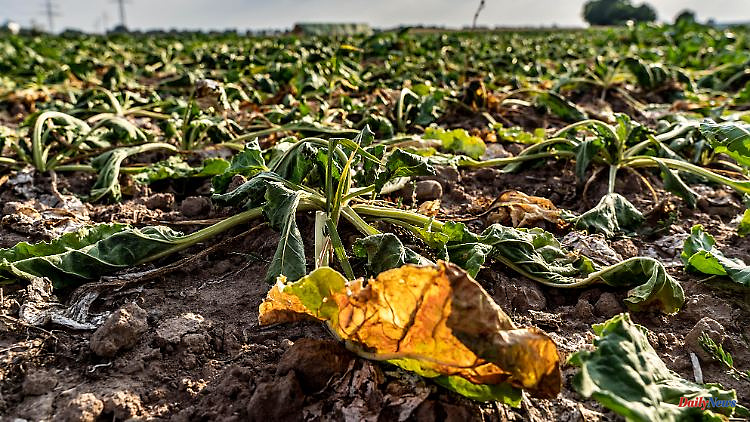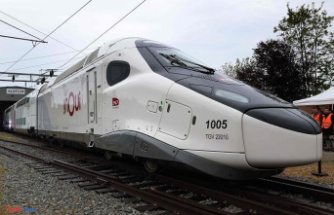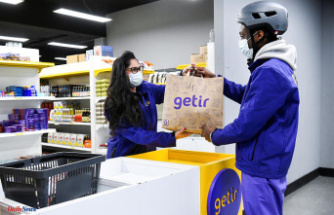In the UK, supermarkets are already introducing a limit on lettuce. The consequences of the poor vegetable harvest are also affecting Germany. A type of vegetable could also become scarce here very quickly.
The amount of vegetables harvested in Germany fell significantly last year, also due to the heat and drought. A total of 3.8 million tons were harvested, twelve percent less than in the record year 2021, as reported by the Federal Statistical Office. That was also two percent less than the average for the years 2016 to 2021. "The reasons for this, in addition to a smaller acreage, were the heat and drought in the summer of 2022," the statistical office explained the development.
In the case of carrots, the harvest volume fell particularly sharply by 19 percent in the past year, with onions there was also an above-average minus of 13 percent. The total acreage for vegetables fell last year by four percent to a good 126,400 hectares. They almost corresponded to the average for the years 2016 to 2021. Organic farms produced a total of 431,000 tons of vegetables on a good 17,800 hectares.
"After a steady increase in the area under organic cultivation since the first survey in 2012 by a total of 71 percent, this fell for the first time in 2022," the Federal Office stated. The decrease was four percent compared to 2021. The harvest volume even decreased by ten percent. The proportion of fully organic production remained unchanged at 11 percent of the harvest and 14 percent of the area under cultivation.
In Great Britain there are currently complaints about a vegetable shortage. The background is a poor harvest in southern Europe and North Africa due to the weather and high energy costs in Great Britain and the Netherlands, where vegetables are grown in greenhouses. According to the government, the slack could last for up to a month.
The Environment Minister, Therese Coffey, who is also responsible for food, referred to local vegetables that fit the season in view of the lack of tomatoes, lettuce and cucumbers in the trade. "A lot of people would be eating beets right now and not necessarily thinking about lettuce and tomatoes," she said. Last Wednesday, Britain's largest retailer, Tesco, followed rivals like Aldi by capping the sale of salads per customer.
Meanwhile, the Federal Ministry of Agriculture sees no signs that there could be bottlenecks in the supply of vegetables and fruit, as in Great Britain. "The supply situation in Germany with fresh fruit and vegetables is currently secured," said a ministry spokeswoman for the Düsseldorf "Rheinische Post". However, there have recently been further price increases for certain types of fruit and vegetables. Tomatoes, peppers, cucumbers, mandarins and clementines, among other things, have become more expensive. The main reason is the unfavorable weather in the main growing areas in Italy and Spain as well as limited harvest quantities in Morocco and Turkey. In addition, there would be higher freight costs and the greenhouse production in the Netherlands and Belgium affected by the high energy costs.












